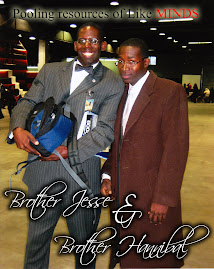| Indigenous groups find their own voice under Evo Morales
THE GUARDIAN , LA PAZ AND ACHACACHI, BOLIVIA
Monday, Apr 27, 2009, Page 7 For centuries they were shadow people, a defeated underclass banished to the margins of society and forced to work, and obey, in silence. But a largely peaceful revolution has empowered Bolivia’s indigenous majority this year and transformed the country into a 21st-century standard-bearer for South America’s native populations.
Under the banner of Bolivian President Evo Morales, the country’s first indigenous president, Aymara, Quechua and other groups have seized political control and uncorked a renaissance in arts, music and traditional institutions.
Exploiting victory in a constitutional referendum earlier this year, which “refounded” Bolivia and gave sweeping rights to indigenous groups, the “little Indians,” as they were once known, have placed their language and customs at the heart of the new state and reinvented elements of their culture through modern forms such as hip-hop and rap.
“We are recovering our history and identity; we are reclaiming our heroes,” said Eugenio Rojas, mayor of Achacachi, an Aymara stronghold in the highlands above La Paz.
The municipality has erected a giant statue of Tupac Katari, an 18th-century rebel who was captured, tortured and executed by the Spanish in 1781.
“Katari is a symbol of resistance,” Rojas said.
Behind the mayor’s desk hung a wiphala, a brightly colored emblem representing indigenous people that was officially established earlier this year as the dual flag of Bolivia, along with the traditional, colonial-era red, yellow and green one. Meanwhile, civil servants are busy learning Aymara and Quechua, the two main indigenous languages. State media reinforce the message that the Spanish tongue’s dominance is over. “Indigenous communities are having more space on TV and that is a reflection of the country’s reality,” said Leila Cortez, head of the state TV network.
Young musicians and hip-hop artists in El Alto, Bolivia’s de facto indigenous capital, have blended ancient Andean folk styles with politically charged rap lyrics espousing “liberation.”
Abraham Bojorquez, leader of a group called Ukamau y Ke, said there was no contradiction in his US-style baggy jeans and baseball cap.
“Hip-hop is a revolutionary genre, so why not adapt it to what we want to say?” he said.
The reinvention extends to highland cholitas — women who wear bowler hats, flouncy skirts and pigtails, and once were either peasants or servants.
Amalia Morales Rondo made history by becoming the first cholita to attend law school and become a judge.
“People now know that indigenous women are not only useful for carrying potatoes in their ponchos, but are also capable of occupying important jobs,” she said.
This story has been viewed 359 times. |














No comments:
Post a Comment